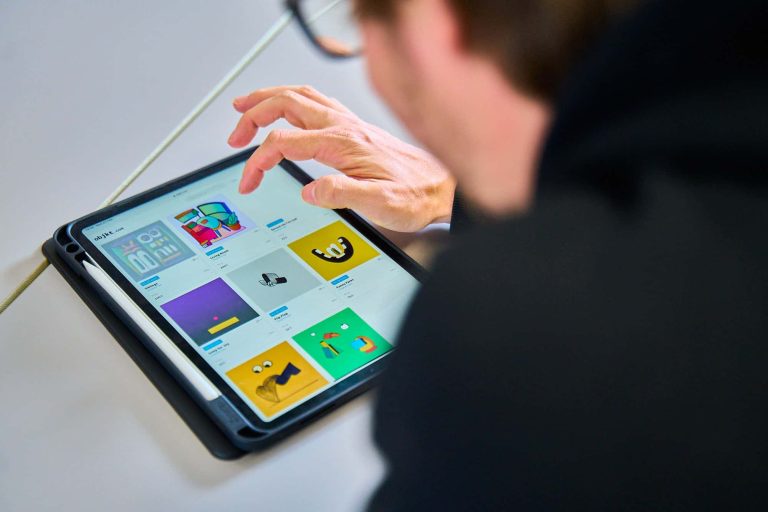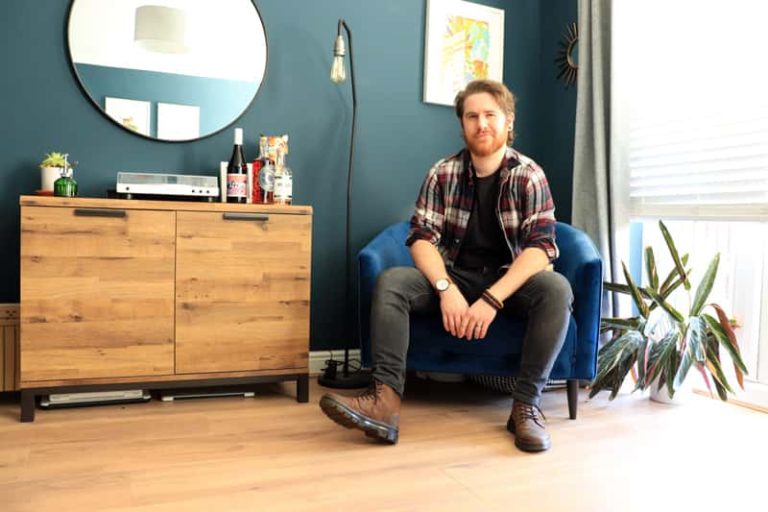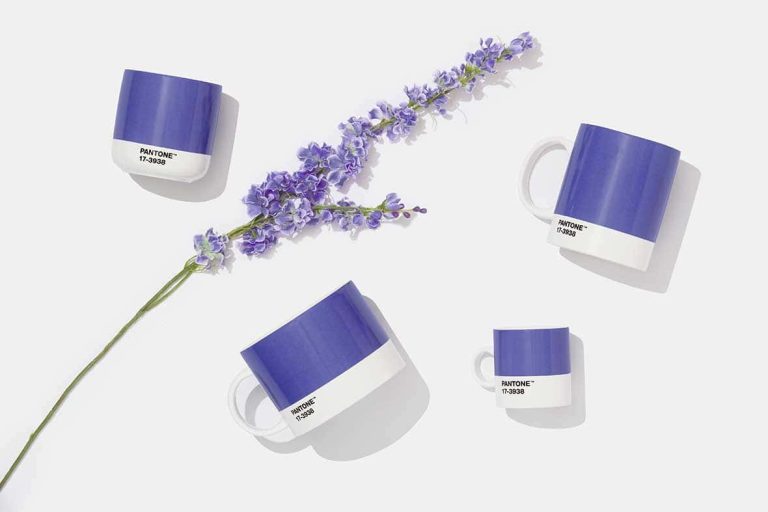In conversation with: Madeleine Hoyte, BSc (Hons) User Experience
Madeleine discusses what it’s like to study BSc (Hons) User Experience.
Madeleine discusses what it’s like to study BSc (Hons) User Experience.
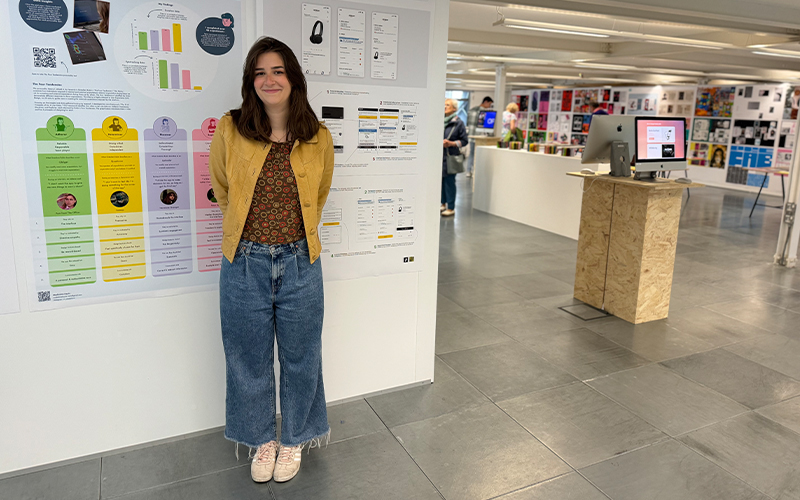
Hello! I’m Madeleine Hoyte, a recent Graduate from Norwich University of the Arts, where I spent the last three years pursuing a BSc (Hons) in User Experience Design (UX). I am excited to share my (user) experience with you—excuse the pun.
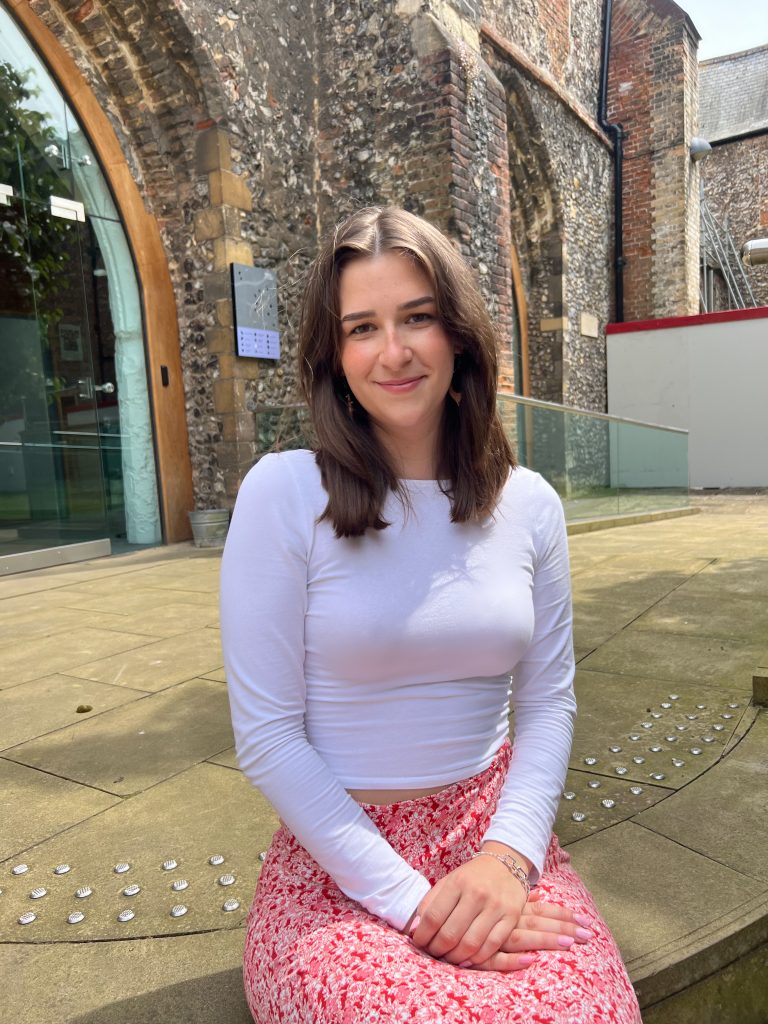
When I began my search for undergraduate study, I needed to make a mountain of decisions. What course should I do? Which university should I join? Where should I live? And much more. It was overwhelming, as I’m sure many prospective undergraduates can relate. What helped me make my decision was establishing what I wanted from my university experience: to make friends with people like me, grow in confidence, and embrace creativity in my work and life. Norwich University of the Arts provided that for me.
Norwich is home to a community of like-minded people, making it easier to connect and establish friendships. The nature of an arts university is that it gathers individuals from a range of backgrounds, based on one common interest: creativity, and puts them together in one place. I’m so grateful for this environment as it has connected me to many interesting and creative people who I know will always be in my life.
My tutor, Dave Watson, has mastered the art of cultivating confidence in his students through a balance of support as well as independence. This style of teaching (that encourages you to trust your instinct when working on a project whilst also receiving regular constructive feedback), helped me build confidence in myself and my abilities.
When you’re a student at Norwich, creativity is at the heart of your work, your connections, and your lifestyle. I’ve had the opportunity to participate in numerous creative projects, from designing interactive prototypes to contributing to art installations. The city has a rich cultural heritage and vibrant arts scene, which serves as a constant source of inspiration for me.
Once I’d found my footing as a student at Norwich, establishing a weekly and daily routine came naturally. My weeks consisted of working every day (minus a few weekend days of course), with assigned studio days twice a week. These studio days served as an opportunity to speak one-to-one with my tutors and work on my projects alongside my peers on the UX course. We’d chat, share ideas and support each other with our individual projects. As someone who is highly interested in the research side of UX, my focus throughout the week alternated between research (such as user tests, statistical analysis, and usability research) and design tasks, including prototyping on Figma and website development on Framer.
I also worked as a shelver at the University library once a week, a job I recommend students strive for as it grounded me during a busy week. The library is a great place to work on your projects too, with easy access to Macs, printers and subject relevant books, as well as a supportive library team. I couldn’t have completed my degree without it.
I have dedicated my studies primarily to the research side of UX. My work surrounds psychological exploration within this field, having worked on and still pursuing a project that explores the effects of personality on user behaviour. Using the facilities provided by the University and guidance from my tutors, I designed and conducted a series of experiments to investigate this. My studies found a connection between a user’s personality type and how they behaved on websites and apps. Hannah Batt, who you can find in the Creative Tech Lab, provided technical support and set me up with audio and visual recording equipment. Using the eye tracking software that Norwich provides, I discovered that personality type even affected where a user looked on the screen!
Through analysis of results, I have developed my own theory: ‘The 5 UX Principles of the 4 User Roles.’ It identifies four roles a user can take on: adherer, determiner, discerner and explorer. The graph I designed below introduces these four roles and the five principles of designing for each.
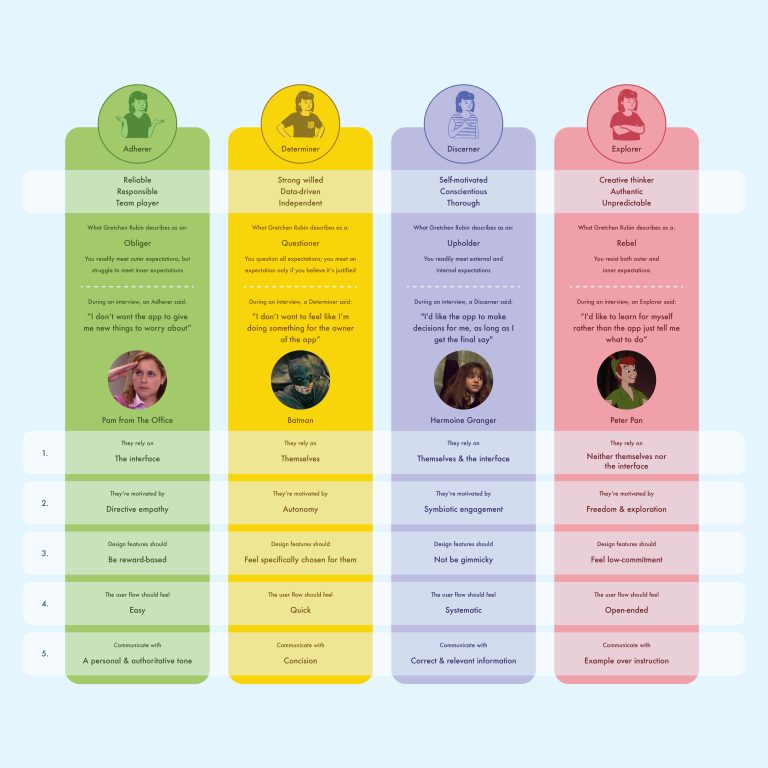
I am passionate about research and it’s potential to enhance inclusivity. By understanding users, we can tailor products to meet their specific needs and requirements. Imagine a world where digital experiences are designed specifically for your personality type. Not only would this be incredibly fun, but it would also make traditionally stressful digital experiences, such as online banking, healthcare services and job applications, more user-friendly and stress-free. This personalisation could ensure that an individual’s personality type no longer hinders them from completing these tasks effectively.
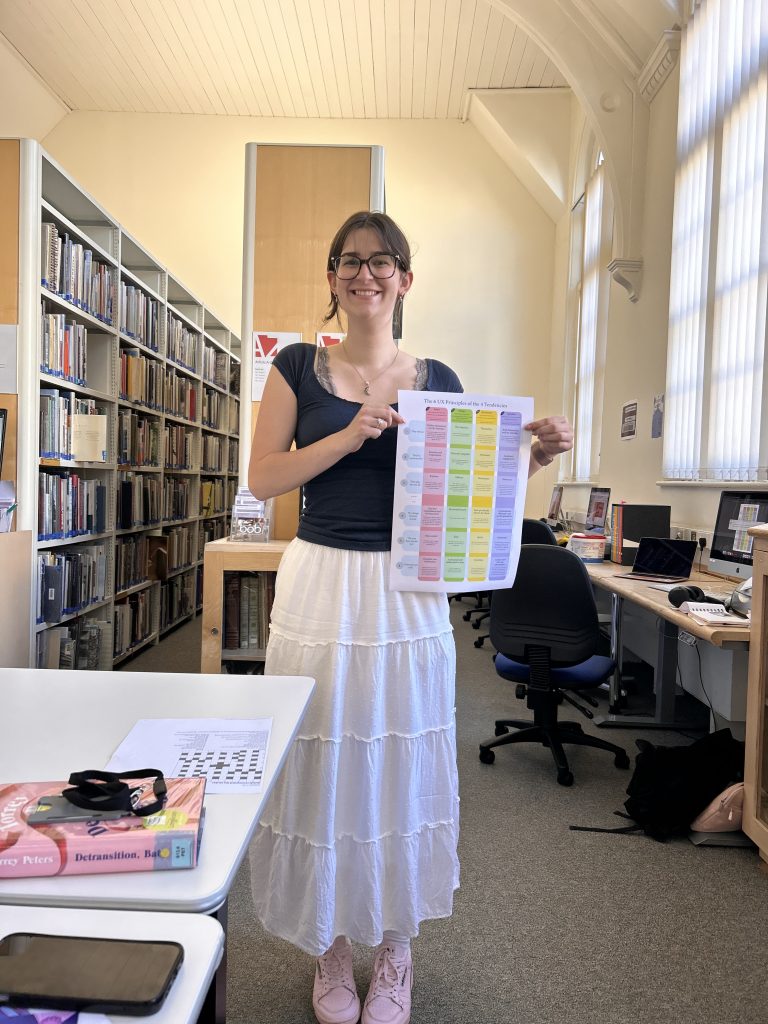
Truly, the studio days are the highlight of my experience. Despite it being the baseline for the course and what it offers, it’s the best part and will be what I remember when I think back on my time at Norwich. I got to spend time working on my project within a space that cultivates creativity, surrounded by my friends and peers who share the same outlook and aspirations as me. What more could you ask for.
BSc (Hons) User Experience DesignYou can discover more of Madeleine’s work by visiting her website and LinkedIn.




